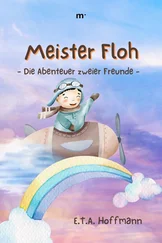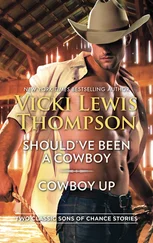“Not going to happen,” I told her. “I’ve already got a plan. It’ll work. You just have to have a little faith in me.”
She tipped her head, and her hands went still in midair. “I’ve got all the faith in the world in you. But we need to act soon with him. Dave will help us, and sometimes you just have to accept help when it’s offered. Admitting you need it isn’t a weakness. It’s a sign of strength.”
This was something Jill did a lot. When she was talking about moving in with Stan or what my dad needed these days or anything where someone was having a hard time, she started sounding like she was running an AA meeting. I wouldn’t have rolled my eyes at her, but I sure wanted to some days. So I let it go. I told her we’d figure it out once the baby got here. And I guess I just ignored the obvious, which was that if I was really a good judge of my capabilities, we wouldn’t have been stuck in fucking Frasier in the first place.
Candy
The jungle-camo jacket pulled tight across her brother’s back as he lay in the dirt with his eye up against the AR-15’s iron sight, trying to get a bead on the paper target’s red center. The scuffed bottoms of his boots faced Candy. Their father crouched beside him, rattling off instructions in a voice that had the crack of a rifle in it, so sharply did it cut the air. In response Elias squeezed the grip and the bipod in turn, as if he was milking a cow, or crushing one of the foam stress balls they gave out at the hardware store.
Pop. Pop. The second one was hesitant. Pop. She squinted, tightened her arms across her jacket, prayed for him. They had been here for three hours, in this clearing in the heart of the woods, long after their father’s friends had packed up and gone home. It was their job to run back and forth to the house in search of additional ammo, beer, gun-cleaning equipment, bags of corn chips or whatever else their father might order. In between, Candy drew letters in the dust, quizzing Elias on his alphabet. He was only in the first grade; she was in the third. When he grew tired of that she placed acorn caps and bits of gravel in each of his palms and asked him to find the sums. It gave her a good feeling to teach him this way, a tender and grown-up feeling, and sometimes when he got an answer right she felt the urge to pull him into her arms and rock him like a baby doll. But he would never tolerate that.
It had been all right until their father called Elias over to try his hand at the AR-15—calculated, Candy could see, to show off for their friends—and Elias had missed every shot at the target. Their dad, inspired by three or four beers’ worth of overconfidence, had been embarrassed by his son’s incompetence, his forgetfulness about even the most basic elements of loading and handling a rifle. The failure had won Elias an hour of remedial training, and their father’s frustration escalated with every missed shot.
“No,” he said, incredulous. “No, no and no. Why’s your hand shaking? Stop that. Just look. It’s red. Just line ’em up.”
Pop.
Candy winced. Their father’s arm flew out at Elias, attempting to cuff him on the side of the head, but he dodged it. Quickly he made a second grab, this time for the back of Elias’s jacket, which bunched up like the neck of a kitten. Without letting go, he cupped his other big hand around the back of Elias’s head and, with a steady, deliberate rhythm, knocked his forehead into the leveled stump on which the rifle rested.
“What’s rule one.”
“Point it in a safe direction.”
“What’s rule two.”
“Finger off the trigger.”
“What’s rule three.”
“Know what you’re shooting at.”
“Then why don’t you, you worthless fucking turd.”
He dropped his clutch of jacket and Elias slumped against the ground. After a moment Candy skittered over, gathering up a clinking armful of empties to be sure she looked useful, and ushered Elias out of the woods. Their father ignored them, staying behind, unloading his rifle alone.
Once home, Elias clunked straight up the stairs and climbed into bed. Candy followed at half his pace. His bedroom door creaked a little on its hinges when she pushed it open, but his closed eyelids didn’t flutter. He only curled into a harder ball beneath the blanket, like a potato bug showered with light. Above the blanket, the bridge of his nose and his forehead were sheeted with the pale brown grit of the clearing.
She stepped into the room and softly shut the door behind her. Without even removing her shoes, she climbed into bed behind him. She draped a hesitant hand against his shoulder; then, when he didn’t move, she wrapped her arm across his chest. His solid body beneath the blanket was radiant and warm. Carefully she rested her forehead against the bristled back of his head. She could feel her own humid breath double back to her as it hit his neck. His heartbeat against her wrist seemed to stoke the furnace of his body, pushing out heat and more heat, unrelenting and as constant as a star. The regret she felt for him, enormous though it was, had no good word, no solid shape. It was only a reaching out, a formless but abject remorse. She would stay with him until he awoke. Only through her steadfastness would he know the depth of her loyalty, her alignment with him.
In the cocoon of her brother’s warmth, she fell asleep.
She was awakened by a steel grip at the back of her dress, pulling its collar tight against her throat, jerking her puppetlike from the bed. She knew it was her father, and so she gritted her teeth and held down the impulse to scream. He was shouting, You leave him alone, you don’t coddle him, he doesn’t need you. Her shin scraped the edge of the bed, but then she was on her feet, stumbling backward, tugging the lace of her collar away from her neck. Elias’s eyes were wide open, but he hadn’t moved.
“You get down there and you help your mother with the dishes,” her father shouted.
“He was just asleep,” she said, her voice low and shaking, pleading in its tones for calm. “Already asleep.”
His large rough hand hustled her out the door. Downstairs in the kitchen she could hear his ragged shouting, his voice coming through the ceiling like sound through water, all vowels. She pictured the earnest effort on her brother’s face earlier as she drew letters in the dust: A. O. E for Eli. As she floated the plates in the hot water beneath a tower of brittle suds, she remembered how snug his warmth had been beneath the woven blanket, how her arm across his chest made her feel like she could lash them together like the logs of a raft, keeping them adrift until it was over.
Leela
Things between me and Candy weren’t always so strained. There was a range of time—between when she was ten and thirteen years old, say—that I thought she might turn out like a regular daughter anyway. She grew real interested in homemaking arts around that age, wanting me to teach her sewing and how to make peach pies and such. It felt a little like a game, but I went along with it. For a while she had a hutch of rabbits in the backyard, white ones, and the babies came out so tiny and sweet you couldn’t help but love them like they were kittens. But then Eddy said they weren’t worth keeping unless we used them for food, and then once a week or so Candy’d go out back with Eddy’s .22 pistol and shoot a few for supper. I’ve lived on a farm all my life, and still I couldn’t stand the sight of her skinning those things on the counter. They were the same little creatures she’d been loving on just the day before. I couldn’t abide it, so they had to go.
Читать дальше












